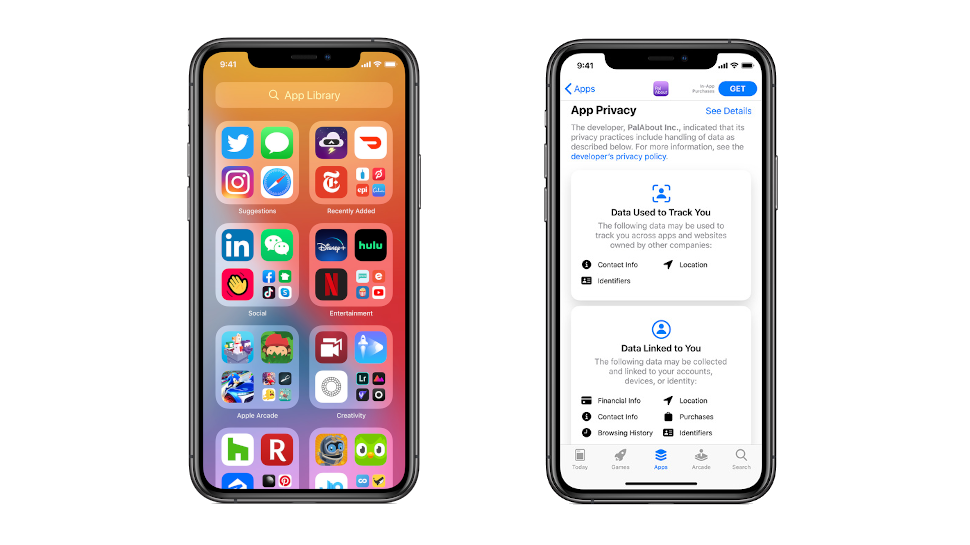iOS 14 upgrades make it the most private Apple platform yet
iOS 14 sees Apple renew its commitment to user privacy and data security

Apple has unveiled a host of privacy upgrades set to feature in iOS 14, in a move designed to further solidify its stellar reputation in the context of security and data protection.
During its WWDC 2020 keynote, the company reiterated its commitment to user privacy, which was described as a “fundamental human right”, and set out a series of changes to its mobile platform.
The most significant new measure will require all developers to provide a summary of an app’s privacy practices and the data it collects, to be displayed before the user activates a download.
- Here's our list of the best iPhone VPN apps available
- Check out our list of the best iPhone antivirus apps around
- We've built a list of the best password managers out there
Apple likened the measure to “nutrition labels” displayed on food packaging, designed to provide simple-to-read, easily digestible information about a product. Apple’s privacy labels will highlight the types of personal data extracted by an app and shared with Apple, as well as the data that could also be delivered to third parties.
The way Apple handles location data will also be overhauled. Users will now be given the option to share their approximate location with an app (coarse location), as opposed to their precise location (fine location).
Further, apps that want to track a user’s activity across services owned by other companies will be required to seek out explicit permission, and the iPhone’s status bar will also notify users if an app is using (or has recently used) either the camera or microphone.
iOS 14 data privacy
Apple is widely praised for its excellent digital security standards and is looking to extend its lead at the front of the pack with its newest mobile operating system, iOS 14.
Are you a pro? Subscribe to our newsletter
Sign up to the TechRadar Pro newsletter to get all the top news, opinion, features and guidance your business needs to succeed!
During the WWDC opener, the firm took the opportunity to set out its four central data privacy principles: data minimization, on-device intelligence, security protections and transparency and control.
Broadly, these principles describe a commitment to reducing the quantity of user data extracted, increasing the amount of data processed on-device as opposed to transmitted to the cloud, improving security measures and ensuring users are aware of the types of personal data collected.
"Apple's stance on privacy is becoming one of the things that sets it apart from other platforms. It's no surprise that it's pushing its credentials in the area so hard, and making privacy a feature rather than an afterthought,” Ben Wood, Chief of Research at analyst firm CCS Insight, told TechRadar Pro.
"I think some people are going to be shocked to see how much tracking there is in certain apps as a result of the new App Tracking capabilities,” he added.
However, Wood also believes the new steps could jeopardize the business models of companies that rely on user data to monetize their services.
"The introduction of App Tracking control could be a problem for companies that make money from advertising using data collected by their apps. When Apple introduced flags to show an app was tracking a user's location, the developers we spoke with said they saw many users disabling this capability by default,” he explained.
While individual users will no doubt celebrate Apple’s new additions, the knock-on effect on developers and the wider application ecosystems remains to be seen.
- Here's our list of the best VPN services on the market

Joel Khalili is the News and Features Editor at TechRadar Pro, covering cybersecurity, data privacy, cloud, AI, blockchain, internet infrastructure, 5G, data storage and computing. He's responsible for curating our news content, as well as commissioning and producing features on the technologies that are transforming the way the world does business.